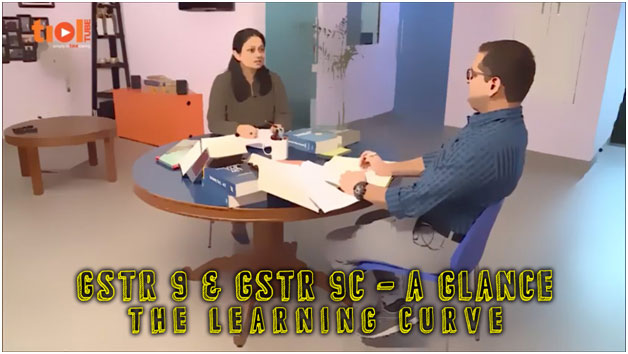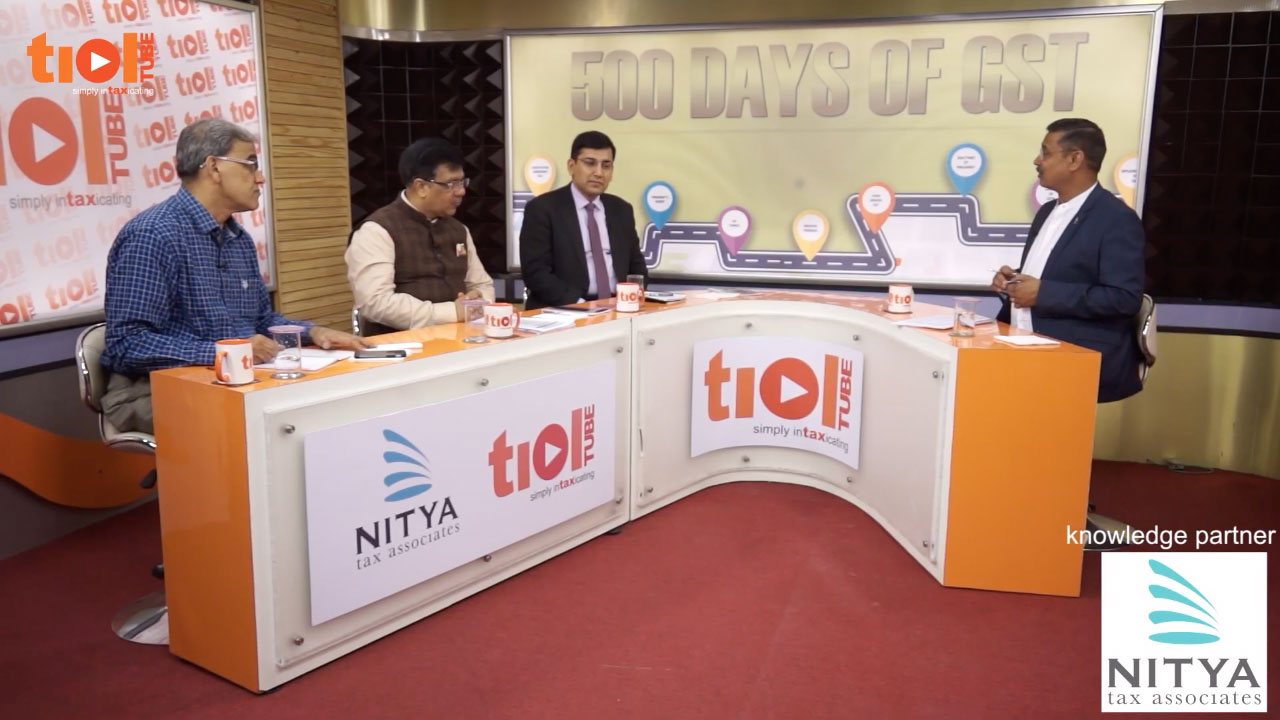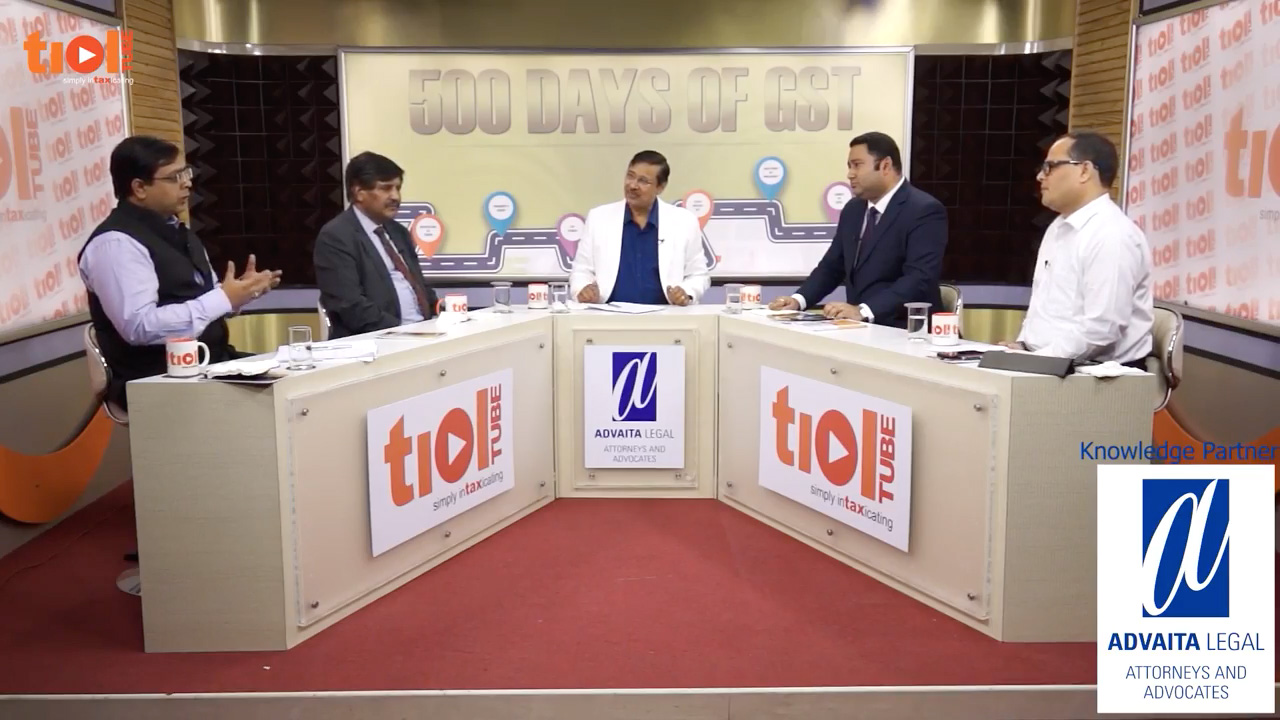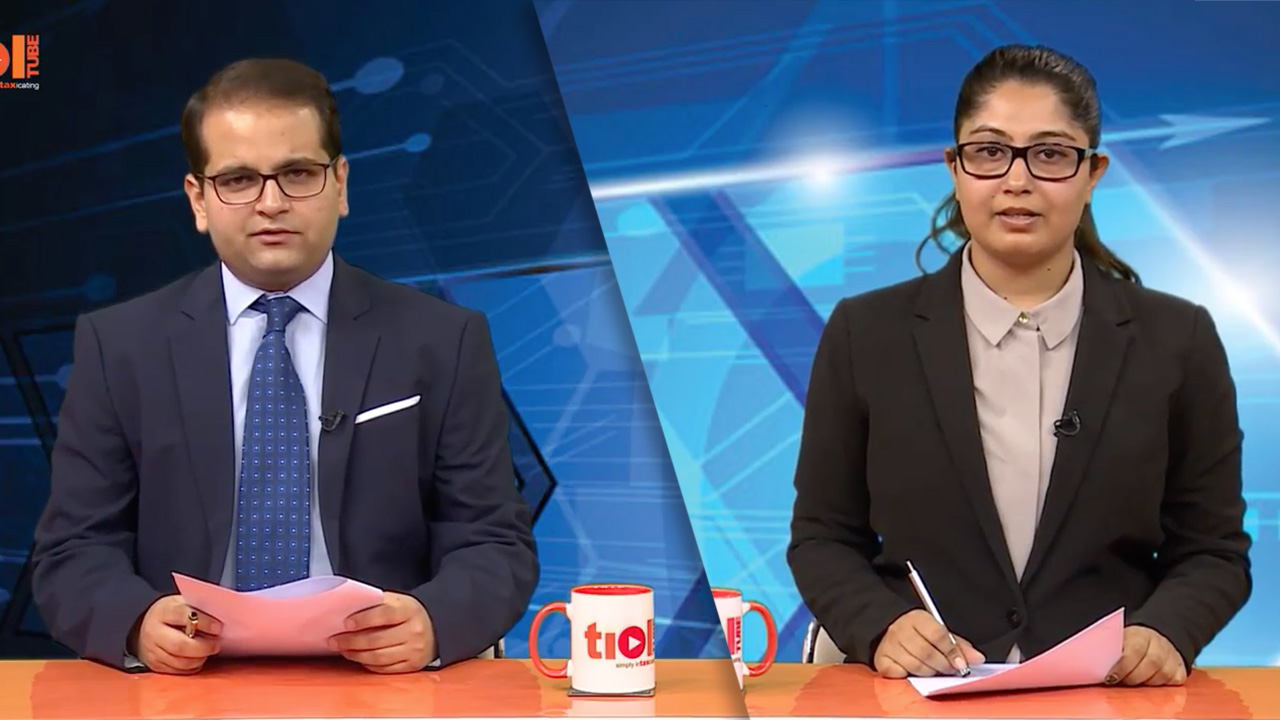SERVICE TAX
2018-TIOL-2474-HC-MUM-ST + Case Story
Bhushan Bal Kulkarni Vs Assistant Commissioner Service Tax
ST - VCES, 2013 - Revenue cannot recover any tax without authority of law - Once the applicant had already paid a part amount of the ‘unpaid tax dues', Assistant Commissioner ought to have considered the correct figure of tax dues - Amendment of declaration should have been allowed - that the amendment application had to be filed in a particular format is not forthcoming and even if so, the same would be a purely procedural aspect - order of Asstt. Commissioner rejecting the declaration and ordering recovery of the declared sum with interest and penalty would amount to recovering the entire amount of Rs.4,73,527/- although Rs.1,32,841/- has already been paid - impugned order set aside and the authority directed to grant the benefit of the VCES, 2013 to the petitioner - Petition disposed of: High Court [para 7 to 9]
- Petition disposed of
:
BOMBAY
HIGH COURT
2018-TIOL-3577-CESTAT-HYD
A V R Storage Tank Terminals Pvt Ltd Vs CCT
ST - The assessee is engaged in the warehousing of bulk liquid cargo - During period of dispute, it availed Cenvat credit of the service tax paid on security services for the security guards hired, lift maintenance and under reverse charge mechanism for the services of CA - The Department challenged such availment of credit on grounds that the services had been availed by two firms located in the same office complex - The Department opined that the assessee was entitled to only 1/3rd of the service tax paid on these two services - The Department also held that the services of a CA are not covered under Reverse Charge - Duty demands were raised by invoking extended limitation, for recovery of credit & demands for interest were raised as well - Penalties were also imposed.
Held: The Cenvat credit availed on service tax paid under reverse charge for sCA services availed, the same may be disallowed since there is no provision for payment of service tax under reverse charge for this service - Regarding the other two services, they had been commissioned by the assessee, who also paid the entire service tax amount - However, considering the nature of these services, other entities located in the assessee's vicinity also benefitted from them - This does not dilute the utility of these services for the assessee or the nexus with the assessee's output service - Moreover, the Revenue cannot vivisect & deny partial amount of credit on some services on grounds that somebody else also benefitted from them - Hence the credit cannot be denied - The demands are unsustainable and must be set aside: CESTAT (Para 1,5)
- Assessee's appeal allowed: HYDERABAD CESTAT
2018-TIOL-3576-CESTAT-BANG
Solaris Chemtech Ltd Vs CCE & ST
ST - The assessee is engaged in manufacture of excisable goods and are availing input service credit but not providing any output service - Rule 3(4)(e) of CCR, 2004 provides that CENVAT credit can be utilized for payment of service tax on any output service - Hence, the CENVAT credit utilized by assessee for paying service tax on GTA service becomes irregular, thereby resulting in contravention of provisions of Rule 3(4)(e) of CCR - It is noticed that the actual amount utilized by assessee for discharging service tax on GTA service, education cess and Higher & Secondary Education Cess which has been paid by assessee on being pointed by departmental officers and the amounts paid by assessee is regularized - On these allegations, a SCN was issued to assessee demanding interest and penalty - Issue is no longer res integra and stands settled by Larger Bench decision of Tribunal in case of Panchmahal Steel Ltd. - 2014-TIOL-510-CESTAT-AHM-LB wherein the Larger Bench has considered decisions of various High Courts and held that credit availed for manufacturing activities could be used for payment of service tax on GTA service even if input services or capital goods were not utilized for providing taxable services inasmuch as there was no bar/restriction for such utilization of CENVAT account under Rule 3(4)(e) of the CCR - The Revenue has taken this case to the High Court of Gujarat and High Court of Gujarat has dismissed the appeal of Revenue - The impugned order is not sustainable in law and therefore, the same is set aside: CESTAT
- Appeal allowed: BANGALORE CESTAT
CENTRAL EXCISE
2018-TIOL-3580-CESTAT-MAD
Bay Forge Ltd Vs CCE
CX - Assessee is manufacturer of steel forgings, aluminium rings and end-cutting scraps - Proceedings against assessee have been initiated predominantly for the reason that their suppliers of raw materials, BHEL and L&T Ltd. have not submitted undertaking as required under job work Notfn 24/86-CE - However, assessee have otherwise complied with the requirements of said notification as applicable to them - Even impugned SCN narrates that assessee have "undertaken job work"; that raw materials had been sent by various parties under "job work challans"; that they had returned the resultant products to suppliers concerned and collected "job charges" from them - No doubt, original authority has found fault with the assessee for not having produced confirmation from L&T and BHEL with regard to receipt of goods from assessee and the further use that they had been subjected to - Assessee has however pointed out that they had already produced letter from L&T, a copy of which is found on page 37 of the paper book - The said letter confirms that goods have been received back from assessee and that the same had undergone further manufacture at their end and the final products have been cleared as per the details given in that letter - This being so, all the conditionalities and requirements of Notfn 214/86-CE have been substantively complied with both by the principal manufacturers as well as by assessee - Non-submission of undertaking by principal manufacturers should then be considered as a curable defect - In any case, such undertakings have been subsequently filed by said suppliers - T he impugned order cannot sustain and therefore set aside: CESTAT
- Appeal allowed: CHENNAI CESTAT
2018-TIOL-3579-CESTAT-AHM
Surya Life Science Ltd Vs CCE
CX - The assessee company is a 100% EoU - The assessee submitted ER-II returns during the relevant AY - The Department alleged that the assessee exceeded its limit of DTA clearance - Hence duty demand was raised after invoking extended limitation - The assessee claimed that extended limitation is not invokable since all clearances to DTA & for export had been declared.
Held: The Gujarat High Court in CCE & Cus. vs. Anita Synthetics Pvt. Limited held that deemed exports cannot be clubbed for purposes of calculating clearances in DTA - From the SCN in the present case, it is seen that it is based on returns filed by the assessee - The assessee disclosed the entire clearances to the Revenue - Hence no suppression of facts or mis-declaration cannot be alleged - It is the Revenue's failure to detect the assessee's mistake - Moreover, it is settled law that extended limitation cannot be invoked where B-17 Bond has been furnished - Hence the demands & penalties are set aside: CESTAT (Para 2,3,5,6,7)
- Assessee's appeals allowed: AHMEDABAD CESTAT
2018-TIOL-3578-CESTAT-HYD
Raasi Refractories Ltd Vs CC, CE & ST
CX - During verification of records and books of accounts, it was noticed that assessee has recorded some amounts as received from sale of steel scrap/miscellaneous scrap and Grog - As regards to duty liability on the clearances of scrap arising out of MS Plates, Moulds and Liners, assessee has been taking a consistent stand before Revenue Authorities that this scrap arose during maintenance and repair wornout parts of machinery and during maintenance in workshop - Apex Court in the judgment of Grasim Industries - 2011-TIOL-100-SC-CX held that such scrap is not dutiable - In view of foregoing, demand of duty liability on MS scrap that arises during the repair and maintenance, issue is squarely settled in favour of assessee - Accordingly, the demand with interest thereof and penalties imposed are unsustainable - As regards the demands raised on assessee on the clearances of Grog, confirmation of such demand is correct as assessee is not able to produce any evidence to claim that such Grog cleared by them were non-duty paid and received from open market - In the absence of any such records, assessee is not able to justify his claim that they are not required to pay duty on "Grog" - Accordingly, lower authorities were correct in confirming the demand along with interest and impose penalties: CESTAT
- Appeal partly allowed: HYDERABAD CESTAT
CUSTOMS
2018-TIOL-3575-CESTAT-DEL
Rajasthan Prime Steel Processing Centre Pvt Ltd Vs CC
Cus - The assessee company imported Cold Rolled Steel Sheet - The Department noted that 400 MTs of such sheets were of different dimensions & so the assessee raised two kinds of invoices - One invoice mentioned C&F value & the other invoice was bifurcated into two components, namely Free on Board & Air Freight - The Department alleged that the importer showed only C&F value of imported goods in bill of entries while the supplier's invoices reflected FOB & Air Freight separately - SCN was issued alleging that value of consignment was mis-declared with intent to evade payment of duty - Duty demands were raised with interest & penalties on the assessee, with personal penalty on its directors - Such demands were sustained by the Commr.(A).
Held: The issues at hand are whether the assessee was to pay Customs duty on the C&F amount only - Also whether freight irrespective of whether or not mentioned separately, can be considered @ 20% of Free on Board value upon payment of Customs duty - Rule 10(2) of Customs Valuation Rules clarify that value of imported goods is their transaction value - Any other amount mentioned in proviso to Section 14 can be added to it - Also Rule 10(2)(c)(i) details costs includible in assessing cost of transport - The proviso to this rule specifies that such cost cannot exceed 20% of FOB value of the goods - Also, if such value is not ascertainable, then it would be taken as 20% of FOB value of goods plus cost of insurance - In the present case, the air freight is paid by the supplier & added in C&F value paid by assessee & is ascertainable - Also the freight is @ 10-11% & so the question of its enhancement to 20% does not arise - Moreover, the adjudicating authority confirmed the demand on grounds that the assessee mis-declared freight amount - It is also alleged that the invoices were maipulated merely because invoice is post-dated document - In such case, an allegation as grave as mis-declaration with intent to evade Customs duty cannot be made, considering Apex Court's verdict in Union of India vs. Ashok Kumar - The onus is on the Department to prove correct value as per Rule 10(2) - Such burden has not been discharged - Hence the duty demands with interest & penalty are set aside: CESTAT (Para 2,8,9,10,11,12)
- Assessee's appeals allowed: DELHI CESTAT
|








